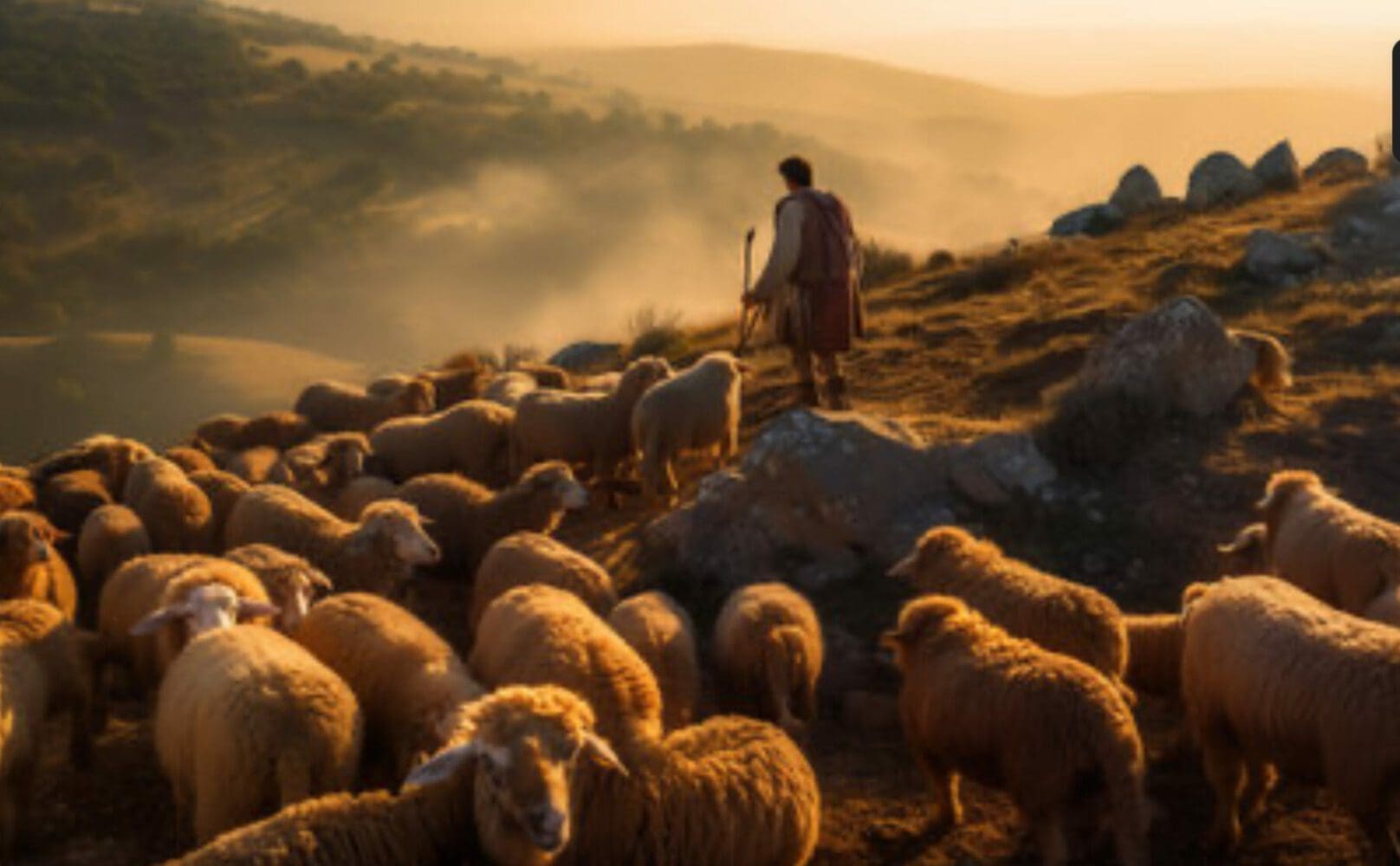Lesson 1: “Good News for All: God’s Unexpected Grace”
Introduction
Imagine yourself eing in the ancient land of Judea, a region steeped in history and significance for the people of Israel. The time is night, and the air is filled with the cool stillness of a Bethlehem evening. In the outskirts of this bustling town, we find a group of shepherds, silently tending to their flocks under the vast expanse of the starlit sky.
Scripture Reading
Read out loud — Luke 2:8-10
And there were shepherds living out in the fields nearby, keeping watch over their flocks at night. An angel of the Lord appeared to them, and the glory of the Lord shone around them, and they were terrified. But the angel said to them, “Do not be afraid. I bring you good news that will cause great joy for all the people”.
Key Points:
1. Unexpected Messengers:
The Shepards where surprise by their visit by an angel. In the cultural context of that time, shepherds were not esteemed, yet God chose them to be the first to hear the good news of Jesus’ birth.
Think about and reflect upon how God often uses unexpected people and circumstances to accomplish His purposes.
2. God’s Glory and Fear:
The Shepard’s initial reaction to the angel’s appearance was fear. Often when encountering the glory of the Lord it can be overwhelming, but God’s message is one of comfort and joy.
Think upon and consider how you might have reacted to the encounter with the angels.
3. “Do Not Be Afraid”:
Reflect on the angel’s reassurance, saying, “Do not be afraid.” Connect this to other instances in the Bible where God’s messengers bring comfort and assurance to people facing the unknown.
Consider the idea that the good news of Jesus is meant to alleviate fear and bring hope. How has Jesus helped you to alleviate fear and bring hope to your life?
4. Good News for All:
Consider the angel’s proclamation of “good news that will cause great joy for all the people” and the inclusive nature of God’s message, breaking down barriers and extending salvation to everyone, regardless of social status or background. How does it feel to be included to receive God’s most precious gift?
Application:
1. Identifying with the Shepherds:
Reflect on moments in your life when you’ve felt marginalized or unworthy and how God’s grace reached you in unexpected ways.
2. Sharing the Good News:
Think about how you can share the good news of Jesus with others, especially those who may feel marginalized or overlooked in society.
3. Embracing Unexpected Grace:
Explore the idea that God’s grace often comes in unexpected ways and consider being open to God’s work in your life and the lives of others. Where have you experienced God’s unexpected grace?
4. Prayer:
Thank you, God for Your inclusive grace, we ask for the courage to share the good news with others. Help me to meditate on the message of the angels and to find comfort in the assurance that Your grace is for everyone.
Scripture
7 The Shepherds and the Angels 8 And in the same region there were shepherds out in the field, keeping watch over their flock by night. 9 And an angel of the Lord appeared to them, and the glory of the Lord shone around them, and they were filled with great fear. 10 And the angel said to them, “Fear not, for behold, I bring you good news of great joy that will be for all the people. 11 For unto you is born this day in the city of David a Savior, who is Christ the Lord. 12 And this will be a sign for you: you will find a baby wrapped in swaddling cloths and lying in a manger.” 13 And suddenly there was with the angel a multitude of the heavenly host praising God and saying, 14 “Glory to God in the highest, and on earth peace among those with whom he is pleased!” Luke 2: 7-11
Study Notes
Contents: Birth of Jesus. His adoration by the shepherds.
Characters: Jesus, Caesar, Augustus, Cyrenius, Joseph, Mary, Moses, Simeon, Anna.
Conclusion: Jesus the Christ, in the fullness of time was brought into the world according to divine counsels. Although born amid the meanest circumstances, His humiliation was attended by discoveries of His glory and His coming was announced as glad tidings to all people. From His childhood days He showed forth some of the rays of His glory in the divine wisdom which He manifested.
Key Word: Glad Tidings, v. 10.
Strong Verses: 10.
History

The role of the shepherd is deeply intertwined with biblical narratives, symbolizing qualities such as guidance, protection, and care. Throughout the Bible, from Genesis to Revelation, shepherds are prominent figures, including revered individuals like Abraham, Moses, and King David. Even Jesus likened himself to a shepherd, emphasizing the importance of this occupation.
In ancient Israel, shepherds tended to flocks of sheep and goats, teaching them obedience and giving them tender care. Their responsibilities varied with the seasons, from grazing in lush pastures in spring to seeking refuge from harsh weather in winter. Shepherds were equipped with simple but sturdy gear, and in return for their care, the animals provided essential resources like milk, meat, fleece, and skins.
The shepherd’s role serves as a model for Christian overseers, emphasizing qualities such as diligence, dependability, and bravery. Today, congregation overseers strive to emulate the good shepherd, caring for their flock willingly and eagerly.



